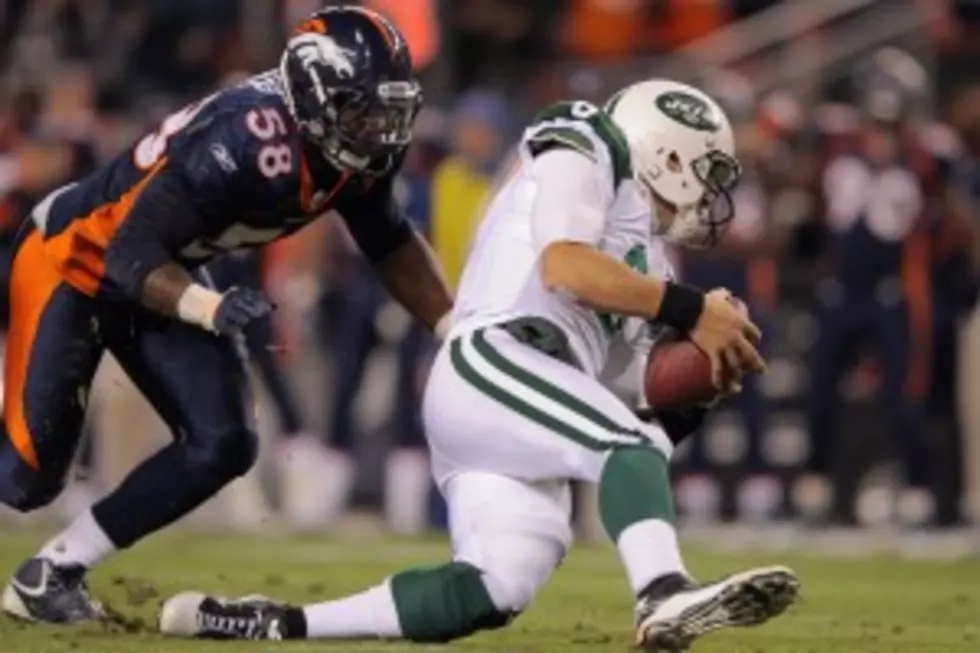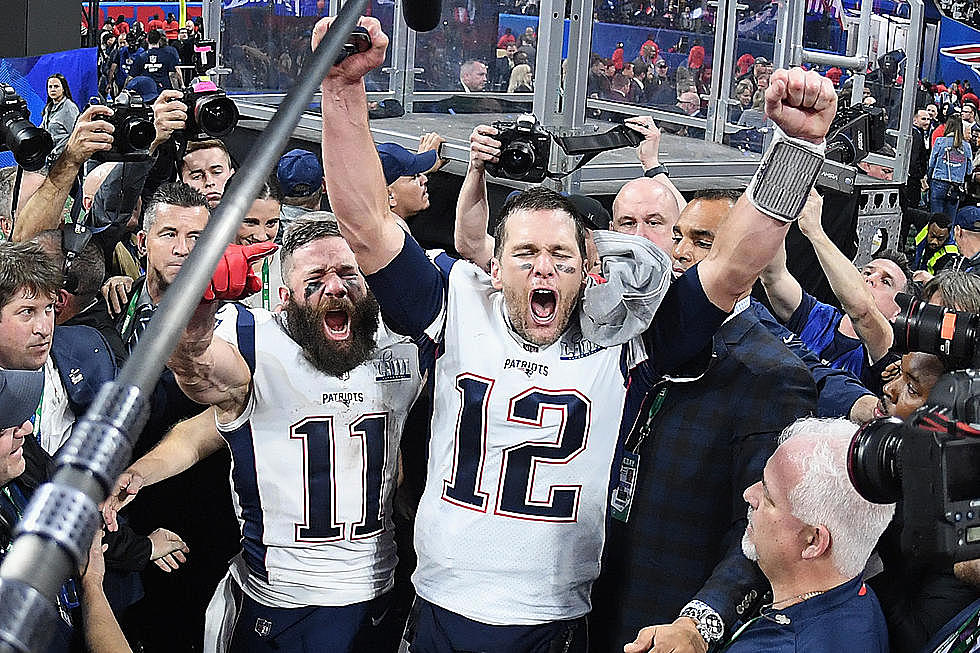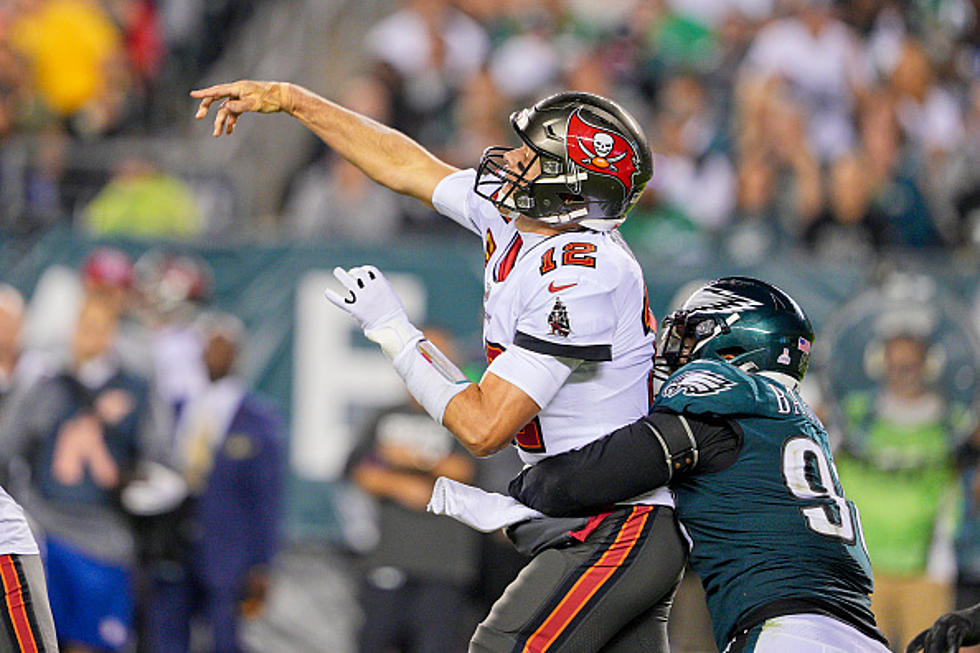
Look Beyond Sanchez
Mark Sanchez isn't an elite quarterback in the National Football League. In fact, he's not even close to being on that level. But, despite what some pundits and a few highlights would have you believe, he isn't the reason for the Jets lack of success in 2011.
We can all agree that Sanchez has not taken a leap forward in 2011 and become the franchise quarterback that some envisioned when New York made him the 5th pick in the 2009 Draft. He's made poor decisions, lost confidence, and misplaced that California swagger that seemed to carry him through the most difficult moments early in his career. The team he leads is middling around the AFC playoff picture without an identity. But don't put this on the quarterback.
Simply put, the Jets front office and coaching staff have done a comically bad job improving a team that reached the last two AFC Championship Games. General manager Mike Tannenbaum deserves blame for constructing a roster inferior to the two that surrounded Sanchez in his first season. We can talk all we want about statistics and numbers when it comes to the quarterback, but it doesn't support an anti-Sanchez sentiment. In fact, the numbers illustrate how poorly the players around him have become.
The following are Mark Sanchez's statistics in the major categories in each of his first three seasons ('09, '10, '11):
Completion percentage: 53.8, 54.8, 57.1
Touchdown-to-interception ratio: 12-20, 17-13, 14-10
Passer rating: 63.0, 75.3, 79.9
Statistically speaking, Mark Sanchez is having his best season as a professional. He's completing a higher percentage of his passes, on pace to throw more touchdowns, and has a higher passer rating than ever before. His team is having less success on the offensive side of the ball because of the deterioration of the roster around him, not his ability or lack there of. The construction of the offense he is forced to lead -- lineman, backs, and receivers -- is worse than any unit he's had to play with.
Let's start with this Jets offensive line unit. What was once considered the best group in the league -- as in 2009 -- has been poor in 2011. It seems like from the opening snap of the season -- maybe because DeMarcus Ware literally embarrassed Wayne Hunter on that play -- defenders have been hitting Sanchez at every angle. Despite having star quality players at left tackle (D'Brick Ferguson), center (Nick Mangold), and right guard (Brandon Moore), the unit doesn't block well at all. In 15 starts during 2009, Sanchez was sacked 26 times. In 16 starts in 2010, he was dropped 27 times. In just 10 games so far this year? 25 sacks, or in other words, a pace of 40 over a full season. They aren't just your average tackles, either. Hits by DeMarcus Ware, Haloti Ngata, and Von Miller have been vicious. Ever wonder why Sanchez's completion percentage dips by quarter (65.6-60.0-54.1-51.1)? It's because the guy is getting rocked for sixty minutes.
The blocking issue, combined with an overvaluing of personnel in the backfield, have taken away what the identity of the offense around Sanchez once was. "Ground and Pound" was the mantra of the 2009 Jets remarkable run to the AFC Championship Game. New York was able to let Sanchez develop as a passer by leaning on a running game that averaged 4.5 and 4.4 yards per carry, respectively, in '09 and '10. This year, led by the aging LaDainian Tomlinson, the inconsistent Shonn Greene, and the limited Joe McKnight, the unit is at 3.9 per rush. It's hard to sell the play action pass when teams don't fear the guys in the backfield.
Although the names have gotten more recognizable, the approach to building this year's receiving corps was laughable. Derek Mason turned out to be a waste of time, Santonio Holmes has complained more than produced, and you can still see the rust on Plaxico Burress. Dustin Keller is impossible to predict at the tight end position. Rookie Jeremy Kerley has been forced into playing time he's not ready for. The veterans that Sanchez worked with and won with from his rookie year on (Jericho Cotchery, Braylon Edwards, Brad Smith) were replaced with a combination of old, young, and temperamental.
And then there's the coaching. Offensive coordinator Brian Schottenheimer draws the ire of Jets fans on almost a weekly basis. He's been responsible for the best and worst of this unit over the last few years. The two critical errors he's made in 2011? Trying to change the identity of the offense overnight and failing to accentuate what his quarterback does best. New York had had tremendous postseason success in the biggest games because of a balanced attack. Sanchez isn't Tom Brady, Aaron Rodgers or Peyton Manning. Asking him to throw the ball 40+ a game usually isn't a good thing.
In fact, his completion percentage by throw is staggering when it comes to volume of passes:
Attempts 1-10: 64%
Attempts 11-20: 61.1%
Attempts 21-30: 54.4%
Attempts 31+: 47.3%
Sanchez is at his best when asked to throw the football around 25 times per game. A balanced attack, leaning on a good running game, and allowing misdirection plays for Sanchez to throw on the run is how this offense got to within 60 minutes of a Super Bowl birth in consecutive years.
The franchise quarterback isn't good enough to win games by himself, but he never was. Don't pretend the Jets problems are about one player. Mark Sanchez is good enough to win big in the NFL, if the team around him is efficient in the areas they are supposed to be built upon.
More From 105.7 The Hawk









